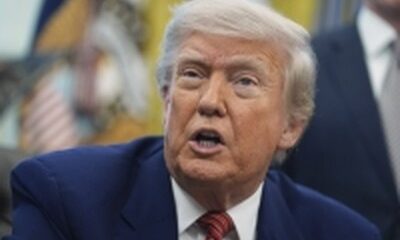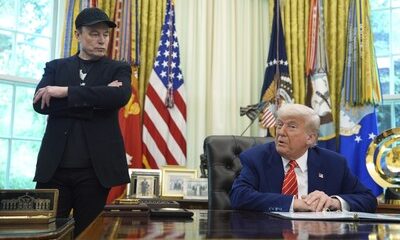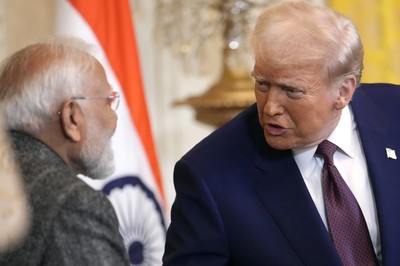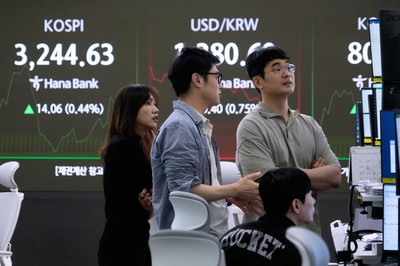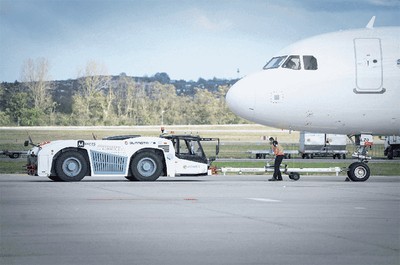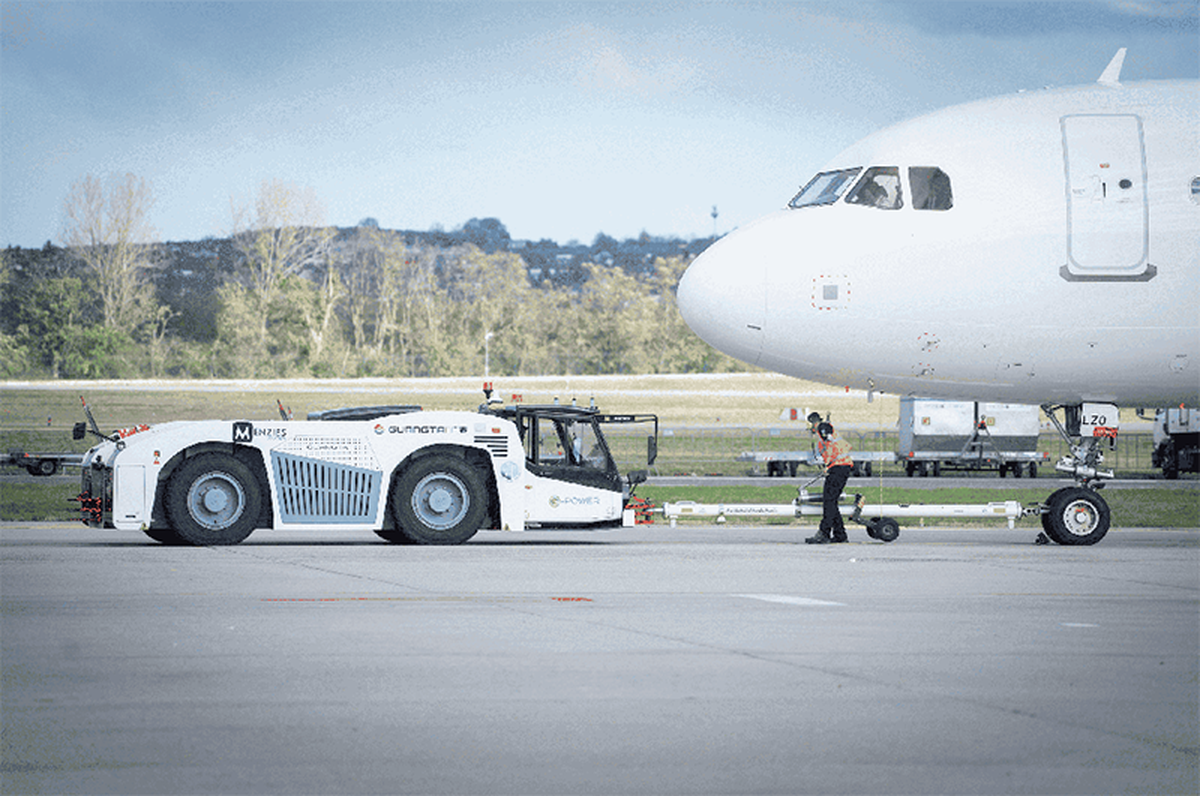NEW YORK (AP) — The world’s richest man could lose billions in his fight with world’s most powerful politician.
The feud between Elon Musk and Donald Trump could mean Tesla’s plans for self-driving cars hit a roadblock, SpaceX flies fewer missions for NASA, Starlink gets fewer overseas satellite contracts and the social media platform X loses advertisers.
Maybe, that is. It all depends on Trump’s appetite for revenge and how the dispute unfolds.
Joked Telemetry Insight auto analyst Sam Abuelsamid, “Since Trump has no history of retaliating against perceived adversaries, he’ll probably just let this pass.”
Turning serious, he sees trouble ahead for Musk.
“For someone that rants so much about government pork, all of Elon’s businesses are extremely dependent on government largesse, which makes him vulnerable.”
Trump and the federal government also stand to lose from a long-running dispute, but not as much as Musk.Tesla robotaxis
The dispute comes just a week before a planned test of Tesla’s driverless taxis in Austin, Texas, a major event for the company because sales of its EVs are lagging in many markets, and Musk needs a win.
Trump can mess things up for Tesla by encouraging federal safety regulators to step in at any sign of trouble for the robotaxis.
Even before the war of words broke out on Thursday, the National Highway Transportation Safety Administration requested data on how Musk’s driverless, autonomous taxis will perform in low-visibility conditions. That request follows an investigation last year into 2.4 million Teslas equipped with full self-driving software after several accidents, including one that killed a pedestrian.
A spokesman for NHTSA said the probe was ongoing and that the agency “will take any necessary actions to protect road safety.”
The Department of Justice has also probed the safety of Tesla cars, but the status of that investigation is unclear. The DOJ did not respond immediately to requests for comment.
The promise of a self-driving future led by Tesla inspired shareholders to boost the stock by 50% in the weeks after Musk confirmed the Austin rollout. But on Thursday, the stock plunged more than 14% amid the Trump-Musk standoff. On Friday, it recovered a bit, bouncing back nearly 4%.
“Tesla’s recent rise was almost entirely driven by robotaxi enthusiasm,” said Morningstar analyst Seth Goldstein. “Elon’s feud with Trump could be a negative.”
Carbon credits business
One often-overlooked but important part of Tesla’s business that could take a hit is its sales of carbon credits.
As Musk and Trump were slugging it out Thursday, Republican senators inserted new language into Trump’s budget bill that would eliminate fines for gas-powered cars that fall short of fuel economy standards. Tesla has a thriving side business selling “regulatory credits” to other automakers to make up for their shortfalls.
Musk has downplayed the importance of the credits business, but the changes would hurt Tesla as it reels from boycotts of its cars tied to Musk’s time working for Trump.
Credit sales jumped by a third to $595 million in the first three months of the year even as total revenue slumped.
Reviving sales
Musk’s foray into right-wing politics cost Tesla sales among the environmentally minded consumers who embraced electric cars and led to boycotts of Tesla showrooms.
If Musk has indeed ended his close association with Trump, those buyers could come back, but that’s far from certain.
Meanwhile, one analyst speculated earlier this year that Trump voters in so-called red counties could buy Teslas “in a meaningful way.” But he’s now less hopeful.
“There are more questions than answers following Thursday developments,” TD Cowen’s Itay Michaeli wrote in his latest report, “and it’s still too early to determine any lasting impacts.”
Michaeli’s stock target for Tesla earlier this year was $388. He has since lowered it to $330. Tesla was trading Friday at $300.
Tesla did not respond to requests for comment.
Moonshot mess
Trump said Thursday that he could cut government contracts to Musk’s rocket company, SpaceX, a massive threat to a company that has received billions of federal dollars.
The privately held company that is reportedly worth $350 billion provides launches, sends astronauts into space for NASA and has a contract to send a team from the space agency to the moon next year.
But if Musk has a lot to lose, so does the U.S.
SpaceX is the only U.S. company capable of transporting crews to and from the space station, using its four-person Dragon capsules. The other alternative is politically dicey: depending wholly on Russia’s Soyuz capsules.
Musk knew all this when he shot back at Trump that SpaceX would begin decommissioning its Dragon spacecraft. But it is unclear how serious his threat was. Several hours later — in a reply to another X user — he said he wouldn’t do it.
Starlink impact?
A subsidiary of SpaceX, the satellite internet company Starlink, appears to also have benefited from Musk’s once-close relationship with the president.
Musk announced that Saudi Arabia had approved Starlink for some services during a trip with Trump in the Middle East last month. The company has also won a string of other recent deals in Bangladesh, Pakistan, India and elsewhere as Trump has threatened tariffs.
It’s not clear how much politics played a role, and how much is pure business.
On Friday, The Associated Press confirmed that India had approved a key license to Starlink. At least 40% of India’s more than 1.4 billion people have no access to the internet.
Ad revival interrupted?
Big advertisers that fled X after Musk welcomed all manner of conspiracy theories to the social media platform have started to trickle back in recent months, possibly out of fear of a conservative backlash.
Musk has called their decision to leave an “illegal boycott” and sued them, and the Trump administration recently weighed in with a Federal Trade Commission probe into possible coordination among them.
Now advertisers may have to worry about a different danger.
If Trump sours on X, “there’s a risk that it could again become politically radioactive for major brands,” said Sarah Kreps, a political scientist at Cornell University. She added, though, that an “exodus isn’t obvious, and it would depend heavily on how the conflict escalates, how long it lasts and how it ends.”

 Politics21 hours ago
Politics21 hours ago
 Business20 hours ago
Business20 hours ago
 Latest News19 hours ago
Latest News19 hours ago
 Business23 hours ago
Business23 hours ago
 Politics18 hours ago
Politics18 hours ago
 Latest News20 hours ago
Latest News20 hours ago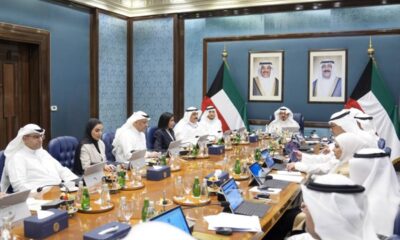
 Latest News9 hours ago
Latest News9 hours ago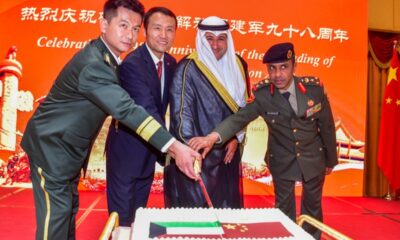
 Latest News8 hours ago
Latest News8 hours ago







